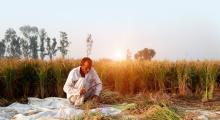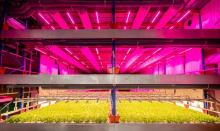Biomass India: from agricultural waste to valuable resource
India, the world’s second-largest producer of rice, is sitting on a mountain of raw material, without realistic options to cash in on it. So each year, farmers burn around 90 million tons of rice straw, releasing a considerable amount of C02 in the process. Indian and Dutch public and private organisations have created the Biomass India consortium to convert this waste into climate-positive products.

